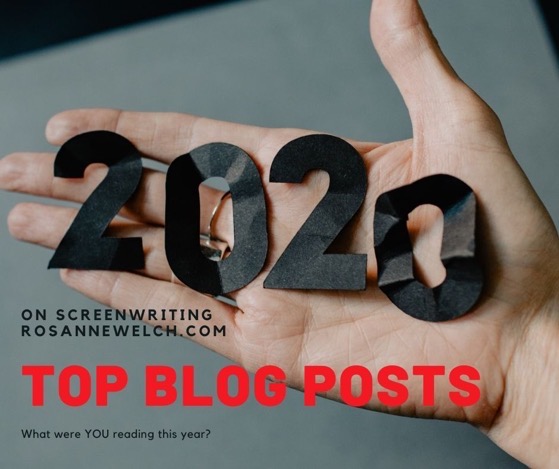Watch this entire presentation
Subscribe to Rosanne’s Channel and receive notice of each new video!
Transcript:
So when I watched Samantha!, I thought, “Okay so how does this work? Oh, you know what? Pretty universal. She wants to be important. She wants to matter in the world. That’s what everybody wants, right, and she wants to be loved. That’s — that’s ridiculously universal but every story that teaches that theme just gives you the details the writer had to offer and to me, that’s one of the most beautiful things because that’s how we learn we’re all the same. All this nonsense — about borders and walls and things I don’t want to talk about — it’s nonsense because we’re all the same right? That’s what we need to learn.
Watch this entire presentation
A Note About This Presentation
A clip from my keynote speech at the 10th Screenwriters´(hi)Stories Seminar for the interdisciplinary Graduation Program in “Education, Art, and History of Culture”, in Mackenzie Presbyterian University, at São Paulo, SP, Brazil, focused on the topic “Why Researching Screenwriters (has Always) Mattered.” I was especially pleased with the passion these young scholars have toward screenwriting and it’s importance in transmitting culture across the man-made borders of our world.
To understand the world we have to understand its stories and to understand the world’s stories we must understand the world’s storytellers. A century ago and longer those people would have been the novelists of any particular country but since the invention of film, the storytellers who reach the most people with their ideas and their lessons have been the screenwriters. My teaching philosophy is that: Words matter, Writers matter, and Women writers matte, r so women writers are my focus because they have been the far less researched and yet they are over half the population. We cannot tell the stories of the people until we know what stories the mothers have passed down to their children. Those are the stories that last. Now is the time to research screenwriters of all cultures and the stories they tell because people are finally recognizing the work of writers and appreciating how their favorite stories took shape on the page long before they were cast, or filmed, or edited. But also because streaming services make the stories of many cultures now available to a much wider world than ever before.
Many thanks to Glaucia Davino for the invitation.
* A portion of each sale from Amazon.com directly supports our blogs
** Many of these books may be available from your local library. Check it out!
† Available from the LA Public Library
Podcast: Play in new window | Download
Subscribe: RSS
![45 Universal Themes in Samantha! from Brazil from Why Researching Screenwriters Has Always Mattered [Video] (37 seconds)](https://rosannewelch.com/wp-content/uploads/2021/01/rmw-sao-paolo-45.png)
![Dr. Rosanne Welch Hosts “Act Two: Transitioning to TV Writing from Previous Careers” for the WGA Foundation [Video]](https://rosannewelch.com/wp-content/uploads/2021/01/wga-2021-transitioning.jpg)
![06 Inside The Writers Room from There And Back Again: Writing and Developing for American TV [Video] (43 seconds)](https://rosannewelch.com/wp-content/uploads/2021/01/rmw-oxford-brookes-06.png)
![44 Samantha! from Brazil from Why Researching Screenwriters Has Always Mattered [Video] (1 minute)](https://rosannewelch.com/wp-content/uploads/2021/01/rmw-sao-paolo-44.png)
![05 Women Writers Matter from There And Back Again: Writing and Developing for American TV [Video] (27 seconds)](https://rosannewelch.com/wp-content/uploads/2021/01/rmw-oxford-brookes-05.png)
![43 Murdoch Mysteries from Canada from Why Researching Screenwriters Has Always Mattered [Video] (1 minute)](https://rosannewelch.com/wp-content/uploads/2021/01/rmw-sao-paolo-43.png)

![04 Down With The Auteur Theory from There And Back Again: Writing and Developing for American TV [Video] (54 seconds)](https://rosannewelch.com/wp-content/uploads/2020/12/rmw-oxford-brookes-04.png)
![42 Sharing Culture Internationally from Why Researching Screenwriters Has Always Mattered [Video] (50 seconds)](https://rosannewelch.com/wp-content/uploads/2020/12/rmw-sao-paolo-42.png)
![03 Why Writers Matter from There And Back Again: Writing and Developing for American TV [Video] (41 seconds)](https://rosannewelch.com/wp-content/uploads/2020/12/rmw-oxford-brookes-03.png)